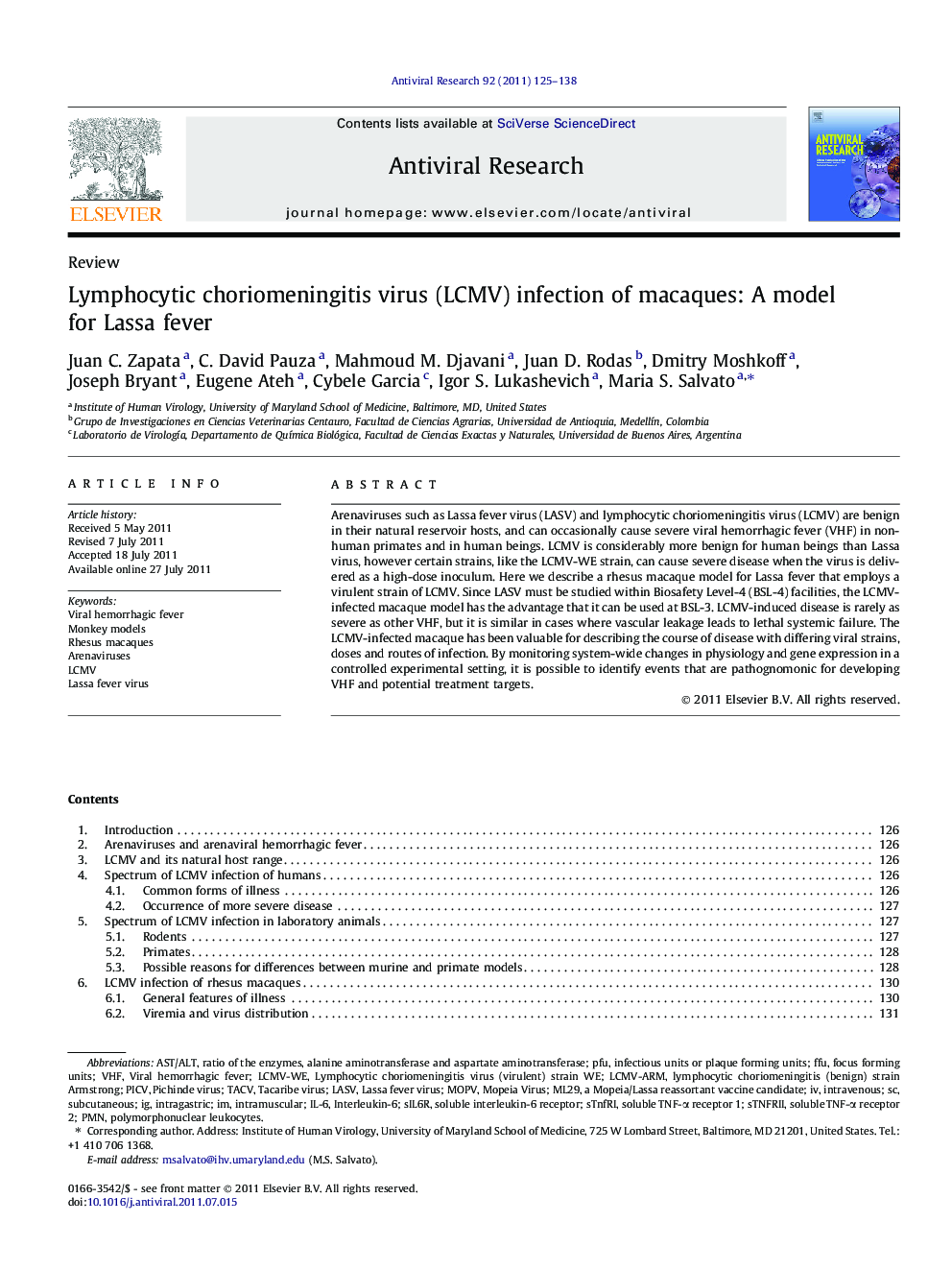| Article ID | Journal | Published Year | Pages | File Type |
|---|---|---|---|---|
| 2510209 | Antiviral Research | 2011 | 14 Pages |
Arenaviruses such as Lassa fever virus (LASV) and lymphocytic choriomeningitis virus (LCMV) are benign in their natural reservoir hosts, and can occasionally cause severe viral hemorrhagic fever (VHF) in non-human primates and in human beings. LCMV is considerably more benign for human beings than Lassa virus, however certain strains, like the LCMV-WE strain, can cause severe disease when the virus is delivered as a high-dose inoculum. Here we describe a rhesus macaque model for Lassa fever that employs a virulent strain of LCMV. Since LASV must be studied within Biosafety Level-4 (BSL-4) facilities, the LCMV-infected macaque model has the advantage that it can be used at BSL-3. LCMV-induced disease is rarely as severe as other VHF, but it is similar in cases where vascular leakage leads to lethal systemic failure. The LCMV-infected macaque has been valuable for describing the course of disease with differing viral strains, doses and routes of infection. By monitoring system-wide changes in physiology and gene expression in a controlled experimental setting, it is possible to identify events that are pathognomonic for developing VHF and potential treatment targets.
► History of LCMV infections of primates (from mice to monkeys and man). ► Comparison of outcomes in murine and primate infections. ► Description of findings from LCMV-infected rhesus macaques. ► Utility of the model for testing host-response antivirals over virus-specific antivirals.
